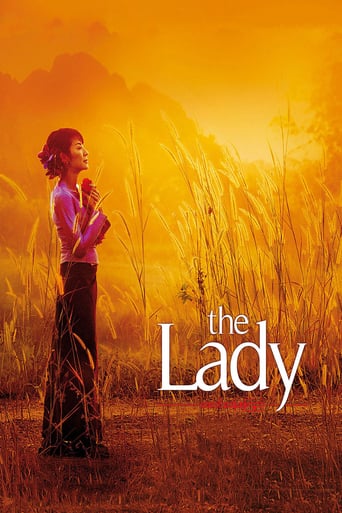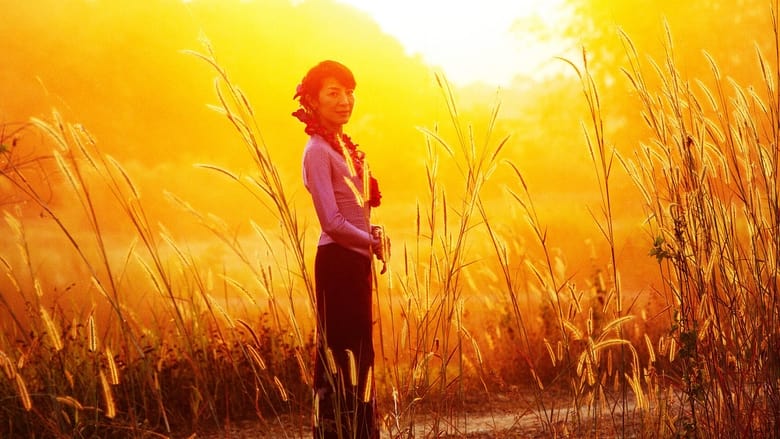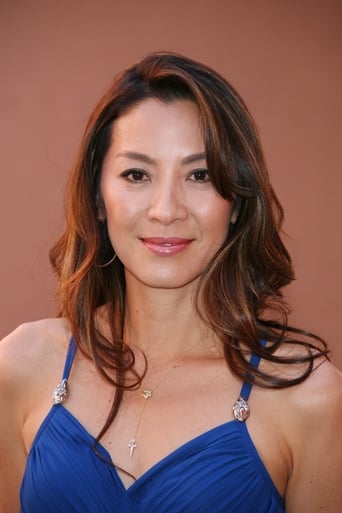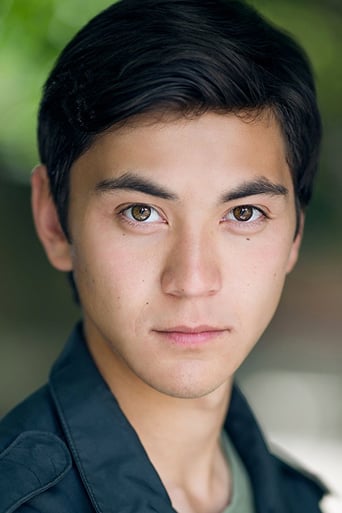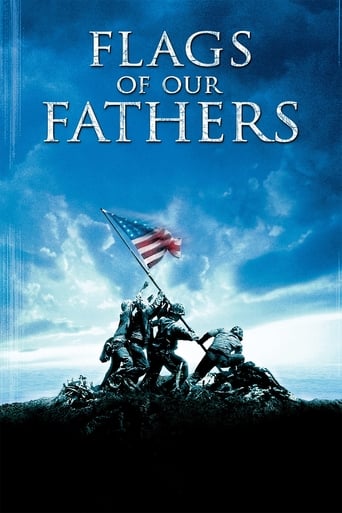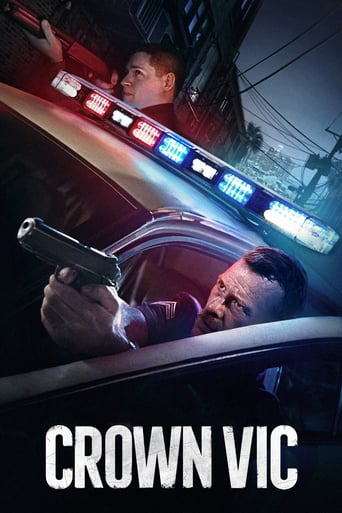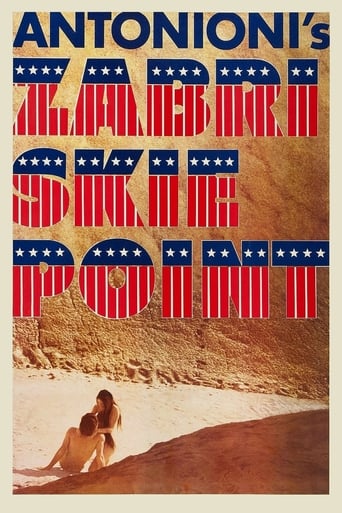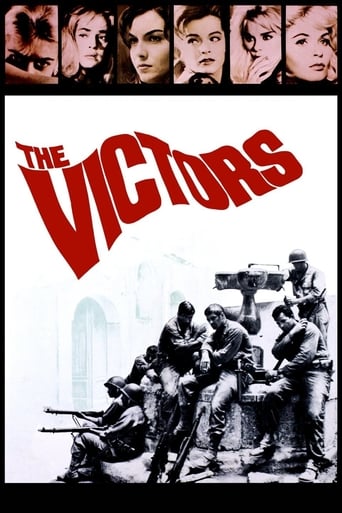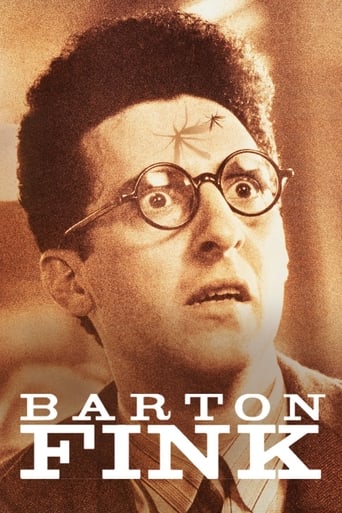The Lady (2012)
The story of Aung San Suu Kyi as she becomes the core of Burma's democracy movement, and her relationship with her husband, writer Michael Aris.
Watch Trailer
Cast


Similar titles
Reviews
Absolutely the worst movie.
It's fun, it's light, [but] it has a hard time when its tries to get heavy.
Pretty good movie overall. First half was nothing special but it got better as it went along.
I cannot think of one single thing that I would change about this film. The acting is incomparable, the directing deft, and the writing poignantly brilliant.
On the face of it, THE LADY has a lot going for it. Filmed mostly in Thailand, it tells the story of Aung San Suu Kyi's (Michelle Yeoh's) progress from happily married homemaker in Oxford, England, to the leader of the democracy movement in Burma (Myanmar) imprisoned by the military for fifteen years. The transition is not an easy one: the authorities try to make Suu's life as difficult as possible, by denying her freedom of movement and preventing her husband Michael (David Thewlis) from visiting her in Burman, even when he is dying with prostate cancer. Yeoh delivers a first-rate performance; her face remains expressionless in public, especially while confronting the generals and their lackeys who try every single strategy they can think of to break her down. Luc Besson's direction is both taut yet hard- edged; his handling of the crowd-scenes is especially good, particularly in the sequence where Suu addresses a band of pro-democracy demonstrators, but does not see the authorities taking off some of the demonstrators to prison at the back of the gathering. The scene where Suu wins the election, and her supporters gather at the gates of her house, only to be repelled by gun-toting soldiers, is also memorable. Yet the film as a whole is let down by Rebecca Frayn's clunky script, which is notable for its clichéd scenes - as, for example, when younger son Kim Aris (Jonathan Raggett) crawls into his father's arms at their Oxford home and says "I miss mum." Frayn's characterization of Suu is perfunctory: we get little sense of why she became such a celebrated figure resisting the military dictatorship, or what her politics actually were. The script is far more concerned with revealing her enduring love for her husband. As a result the film tends to focus on the minutiae of their domestic life rather than explaining the niceties of Burmese politics. Maybe that was not Besson's intention, but it might have made for a more intriguing film.
I personally like biopics & this one was very helpful in giving me a glimpse of what's happening in Burma. Much has been said about the fight for liberty in this country as well as about the fierceness of Suu Kyi & watching this film made me more interested with how our counterparts in Burma are working towards their full liberation.Suu Kyi's situation reminds me of our very own, Cory Aquino, who herself was an icon of democracy.The movie gave me an insight of Suu Kyi's struggles & sacrifices just like Mrs. Aquino herself. One thing that the movie did is for viewers to appreciate the liberty we currently have & the closeness we will feel to Suu Kyi.Great acting chops for Michelle Yeoh & David Thewlis. I wonder why they were not even nominated for an Oscar. Magnificent cinematography too.A highly recommended film.
As a producer, Luc Besson has been comfortably established in the action cinema for many years. However, as a director, we have been seeing him since 2005 working in such diverse genres as the romantic comedy (Angel-A), the fantasy (Les Aventures Extraordinaires d'Adèle Blanc-Sec) and the digital animation (the Arthur and the Minimoys saga)...with quite poor results. In his most recent film as a director, The Lady, Besson goes back to the historical biopic genre (which he had already explored in the excellent The Messenger: The Story of Joan of Arc) in order to focus his attention on another brave woman who contributed to the liberation of a Nation. The result is mediocre, but moderately interesting in general.The events portrayed in The Lady are fascinating, but they aren't easily adapted to the classical dramatic structures of cinema, and that makes the film a bit fragmented and occasionally dull. At the same time the films examines Aung San Suu Kyi as a reluctant political figure, we also have glimpses to the democratic movement in Burma (also known as Myanmar); to the domestic policy of the Nobel Prize Committee; to Michael Aris' complicated family life, raising two teenage sons during the mother's (Suu Kyi) absence; and to the corrupt military leaders from Burma, deciding the life or death of political prisoners through chance and superstition. Sure, all those divergent aspects are necessary in order to comprehend Suu Kyi's democratic crusade; and I also appreciate the fact that screenwriter Rebecca Frayn didn't simplify the story in order to make the film more commercial; but I also feel that there should have been a better defined dramatic arc, which integrated those divergent elements into a faithful and dramatically solid whole.Another problem I found in The Lady is that its story doesn't end, because Suu Kyi's work in Burma hasn't finished either, and as a consequence, the ending doesn't reach the dramatic climax I had been waiting for. In any case, we were handed that climax in little increments through the film. Nevertheless, despite being mediocre, The Lady managed to keep me moderately interested (with the exception of a few dull moments), and I think that that fact, along with the brilliant cinematography and the solid performances from Michelle Yeoh and David Thewlis, are enough to make it worthy of a slight recommendation.
Since 1905, there have been 15 women Nobel Prize winners (three sharing in 2011). The loftiest stature has to be attributed to Mother Teresa. Aung San Suu Kyi, "The Lady" comes very close behind. Luc Besson, generally not exactly known for his modesty, intimated in an interview how humbled he was in his first meeting with her in her house in Burma, coming face to face with Goodness personified. Luc Besson is well known for his appetite to tackle ANY genre (from historical epic to outlandish science fiction, and everything in between), and he has well demonstrated his virtuosity and flare. Filming the story of such a living legend as Aung San Suu Kyi, however, he is somewhat subdued. This is understandable, because of the respect. Uncharacteristically restrained in his visuals, he wisely takes advantage of Eric Serra's excellent original score, to wonderful effects. As well, rather than focusing on heroism in political struggle, he leans more towards presenting a moving mature love story that elevates the word sacrifice to a new height. Absolutely everything hinges, however, on the titular role. Although not many people may know, Michelle Yeoh has long proved that there is much more to her than a premium Amazon, with "The Soong Sisters" (1997). It didn't take long for people trying to cast the role of Aung San Suu Kyi to unanimously agree that Yeoh was born for it. And she is proved them right, convincingly. Her job is exceptionally difficult when you compare it with a majority of successful bio pics in the last decade, where the protagonist is literally history (Ray Charles, Bobby Darin, Truman Capote, J. Edgar Hoover ). Aung San Suu Kyi is in every sense a living legend. People see her frequently in live coverage. The courage and determination is probably quite similar in all heroic figures. But the grace and elegance of "The Lady", even under the acutest of pressures, is unique. Yeoh's portrayal is absolutely flawless, putting her in the same class as Helen Mirren's Queen Elizabeth II and Morgan Freeman's Nelson Mandela. Yeoh's performance, however superb, would not shine as bright without the other half of this love story referred to earlier, or, as one critic aptly calls it, "a story of the man behind the woman". Cannes's Best Actor (1993) David Thewlis is with Yeoh every step of the way in portraying her "most indulgent husband" Michael Aris who does not just support unwaveringly his wife's dream of a free Burma (which would have been remarkable), but embraces it as his own. But there's not just the love between husband and wife, but also love in a happy family, including the two sons Alexander (Jonathan Woodhouse) and Kim (Jonathan Raggett). The most touch scene would have to be the father and two sons receiving the Nobel Prize for the mother who is held in house arrest in Burma - Aung San Suu Kyi listening on the radio to Alexander's acceptance speech on her behalf. That is when it become quite difficult to contain one's tears.

